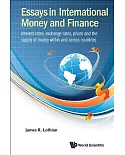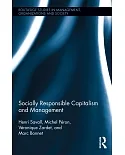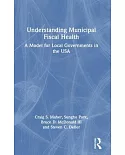Based on a preliminary version presented at the Geneva Conference in May 2012, this Geneva Report on the World Economy examines international economic cooperation and the issues that are most
likely to benefit from it in the future, the constraints posed by international and domestic politics, and the forms of cooperation that are most important and likely to be achieved. It
outlines the lessons from the past in terms of an integrated international economy; the current situation, including the crisis in Europe and issues in China and Japan, and the dangers facing
the world economy in the near future, as well as the political economic obstacles to their resolution; recent experiences of cooperative ventures in an economy characterized by the emergence of
new players and continuing conflicts of interest among principal powers; domestic economic and political obstacles that explain the limited scope of cooperative ventures, with discussion of the
US, the European Union, China, and Brazil; desired governance structures that could address global problems; and predictions on the general state of international economics five to seven years
in the future and issues key to this phase, including trade, financial regulatory coherence, global imbalances, and development. Following the report are discussions and roundtables by
economists from Europe, Asia, and the US. Annotation ©2015 Ringgold, Inc., Portland, OR (protoview.com)





















